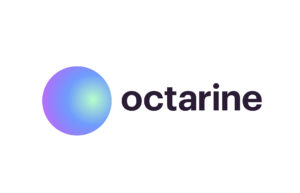Founded in 2018 by bioengineer Dr. Nick Milne (CSO) and biochemist Dr. Nethaji Gallage (CEO), Octarine Bio is a “synthetic biology company developing superior cannabinoid and psilocybin derivatives” via fermentation by metabolically-modified yeast.
Producing Psychedelic Compounds From Yeast
Dr. Gallage explained the therapeutic significance of Octarine’s advanced technology in the Danish outlet MedWatch, stating,
cannabinoids and psychedelics could be break-through therapies for many illnesses, but in order to realize the full potential of the molecules, the first problems to be fixed are their production and their undesired qualities…and we’re doing it in a scalable, sustainable and cost-efficient way.
Octarine’s novel fermentation technology was originally developed at Novo Nordisk Foundation Center for Biosustainability (DTU Biosustain), where Dr. Milne did his postdoctoral research. His team demonstrated their biosynthetic process in a Metabolic Engineering publication, which Psychedelic Science Review covered in April 2020. Fermentation is faster, cheaper, cleaner, and easier to standardize and scale than chemical synthesis or plant/mushroom extraction.
In an April 2020 press release from DTU Biosustain, Dr. Milne stated, “it’s infeasible and way too expensive to extract psilocybin from magic mushrooms, and the best chemical synthesis methods require expensive and difficult to source starting substrates…thus, there is a need to bring down the cost of production and to provide a more consistent supply chain.” Dr. Gallage told MedWatch, “we stand out from everyone else with our ability to biosynthesize not just natural molecules, but also better and tailored cannabinoids and psychedelics that are not present in nature and that are difficult to produce using chemical synthesis.”
How Does Octarine’s Proprietary Platform Work?
First, the genetic material of Psilocybe cubensis (or cannabis) is optimized for expression in yeast. The genetic material is then inserted into the genome of brewer’s yeast Saccharomyces cerevisiae. The use of this particular yeast strain, which has been domesticated over time for commercial use, is critical to Octarine’s process because it ensures sufficient yield.
Previous yeast-based biosynthesis of psilocybin used Escherichia coli, which requires cost-prohibitive modifications to produce enough yield. To further enhance productivity, the yeast is modified yet again so that it generates more tryptophan, a molecule from which organisms make psychedelic tryptamines and other compounds.
The method enables enough production of other P.cubensis derivatives, such as baeocystin and aeruginascin, to study their potential therapeutic value. In an interview with Molly Campbell and Ruairi MacKenzie of Technology Networks, Dr. Milne explained, “an added bonus that we’re exploiting at Octarine is that the whole production system is highly modular. By simply adding or swapping one gene for another we can instead produce closely related molecules or completely novel derivatives.” A key challenge the team has encountered and is actively troubleshooting is the tendency for a critical phosphate group to cleave from half of Octarine’s psilocybin yield.
Commercial Achievements
Octarine Bio won in the Green category of Venture Cup Denmark’s National Startup Competition in 2018 and won the TWB Start-Up Day 2020 Award for best industrial biotechnology start-up. Dr. Gallage also pitched Octarine at BioInnovation Institute’s DemoDay.
In November 2020, Octarine announced it had raised a total of $1.8 million during pre-seed and seed funding rounds. The financing was led by Denmark’s investment fund, Vækstfonden, and contributed to by Enexis AB and former Canopy Growth CEO & Founder Bruce Linton. The funds support the expansion of the company’s IP portfolio, the commercial scalability of its platform, and efforts to clinically validate Octarine’s cannabinoid products’ therapeutic potential.
In a press release, Dr. Milne stated, “Solubility, stability, and bioavailability are significant issues currently limiting the therapeutic application of cannabinoids. With the improved derivatives in our pipeline we’re confident that we can realise the full potential of cannabinoids to treat a range of debilitating conditions.”
